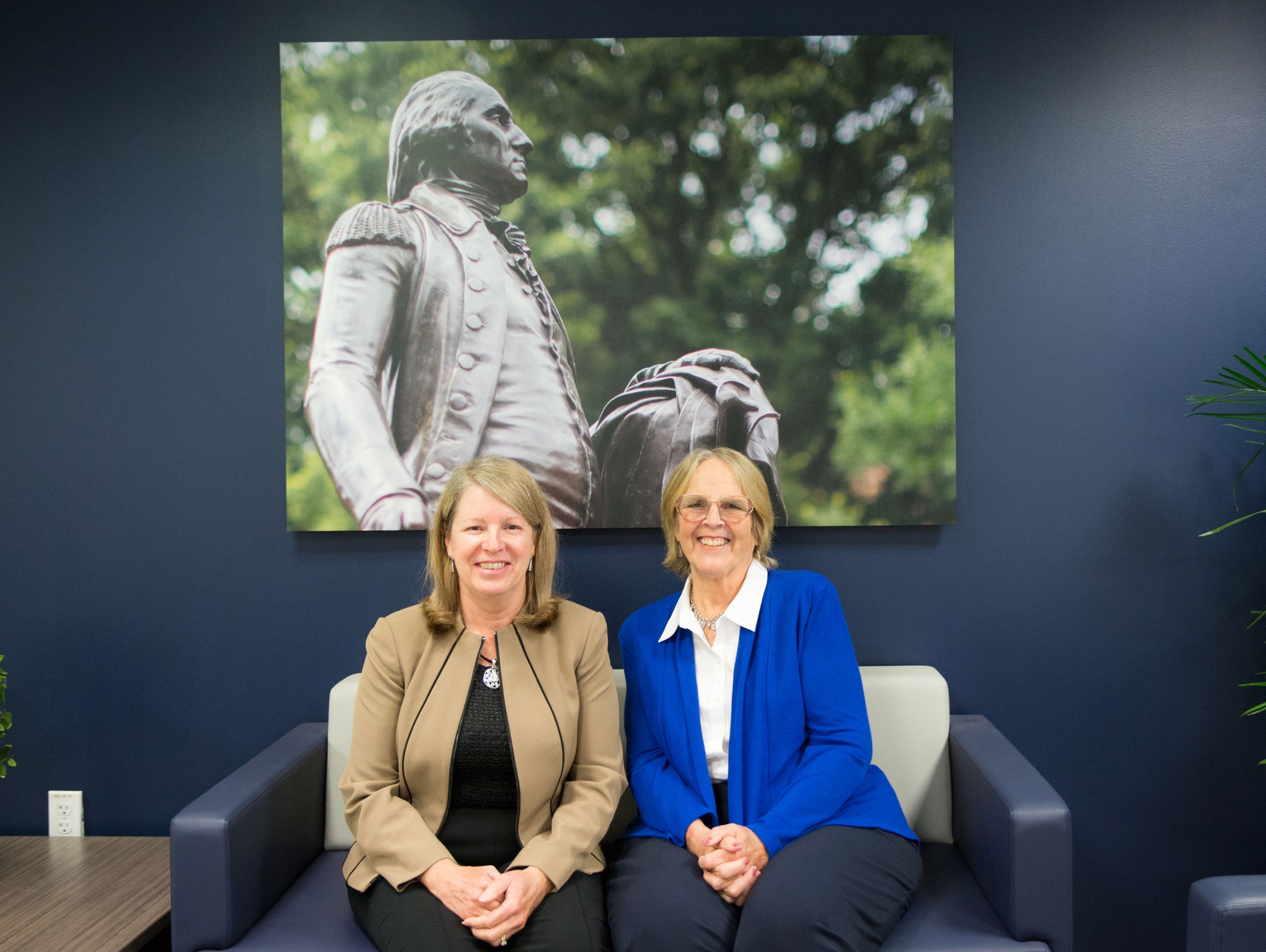Through a grant from The Preeclampsia Foundation, three GW Nursing professors are working to enable mothers to live longer, healthier lives.
Preeclampsia, a metabolic disorder associated with high blood pressure later in pregnancy or post-partum affects between 5 and 8 percent of all pregnancies. It and related issues are a leading cause of maternal and infant death worldwide.
Women who suffer from preeclampsia during pregnancy face significantly raised risks for cardiovascular issues, stroke and death later in life.
Drs. Mayri Leslie, Linda Briggs and Maritza Dowling each bring different areas of expertise to The PEACH Project: Preeclampsia Survivor Awareness of Cardiovascular Health Risk.
As a Nurse-Midwife, Dr. Leslie specializes in women’s health while Dr. Briggs is an Acute Care Nurse Practitioner who specializes in cardiovascular health. Dr. Dowling is GW Nursing’s expert statistician with a special area of interest in cardiovascular risk factors and Alzheimer’s.
The Preeclampsia Foundation awards three highly competitive grants each year to researchers engaged in research to improve these health care outcomes.
The PEACH Project will work in partnership with the Preeclampsia Foundation’s Registry of over 3000 survivors by analyzing existing data and through a special survey. GW researchers want to first know if women who had preeclampsia are aware of their increased cardiovascular risk and if so, how.
Certain lifestyle modifications, including exercise, diet modifications, not smoking and weight, and other changes can improve cardiovascular health over time. Using the database, this team will study whether awareness of the link between preeclampsia and health risks later in life impacts whether patients adopt the modifying behaviors.
“We have a joint interest in improving the well-being of women throughout their lives. Knowing that some face this significantly increased risk after pregnancy, we are investigating both how we could do a better job of educating women and how the women themselves can improve their cardiovascular health,” Dr. Briggs said.
The team believes increased awareness will lead to adoption of healthier behaviors, but other challenges exist. A previous survey of Nurse Practitioners and midwives the team conducted indicated that only about half were aware of the preeclampsia-increased risk connection. A textbook survey indicated the information is often lacking in medical and nursing textbooks as well, according to the team.


